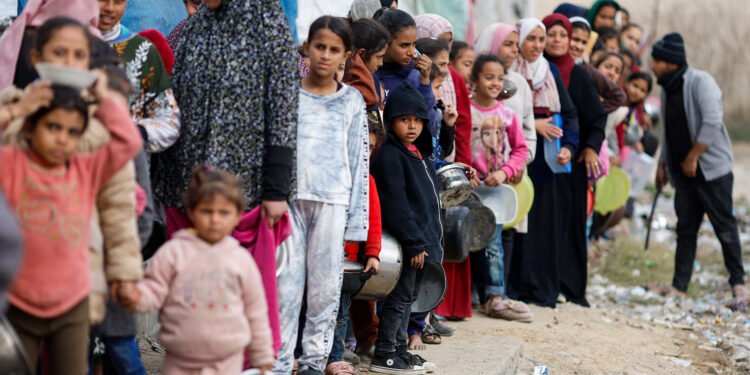Othman Muqbil, CEO of Action for Humanity – the largest non-profit organization in Britain – drew attention to the methods used by Israel to end all aspects of life in Gaza, and called for a response in innovative ways to support the Palestinians who are subjected to unprecedented levels of suffering.
As a Palestinian by origin who has lived all his life through the atrocities committed against his people, Muqbel believes that the current war is worse than any previous war, as the people of Gaza are now bearing acts the likes of which modern history has never witnessed in terms of the ability of humans to inflict death and destruction on others. He added that we are witnessing a catastrophic famine in which people deliberately Israel is starving the people of Gaza by depriving them of the basic necessities that humans need to survive.
Moqbel believes, in an article published by the British website Middle East Eye, that these inhumane acts must be confronted with measures similar to what France and Jordan did when they airdropped several tons of medical aid to hospitals unable to deal with the influx of injured people.
Global responsibility
He added that if the world’s cries to ensure humanitarian aid reaches the people of Gaza across the land borders are ignored, then the world bears responsibility for transporting aid by any other means, “and if they do not allow us to help by land or sea, then we must try by air.”
Mokbel cited airdrops of supplies in previous humanitarian crises, as happened recently to save lives in besieged areas in Syria, and earlier Bosnian residents under siege in Mostar, and South Sudanese communities cut off from aid due to the conflict.
The CEO of Action for Humanity denounced the argument that flour, water bottles or food items – designed for malnourished people or tents – could be used as a weapon against Israelis.
Moqbel comments that airdropping aid onto civilians can help overcome the logistical challenges that relief organizations currently face, and if this is done in coordination with military authorities, the risks to those distributing aid will decrease.
Despite the difficulties that may face airdrops in light of the current situation, Mokbel believes that we have reached the point where the “last resort” has become the only remaining option, and there is no humanitarian excuse for not starting an attempt to airdrop food and water into Gaza.
He concluded his article by saying that the sad truth is that without an immediate ceasefire, airdrops will only hide the huge widening cracks left by the airstrikes.



